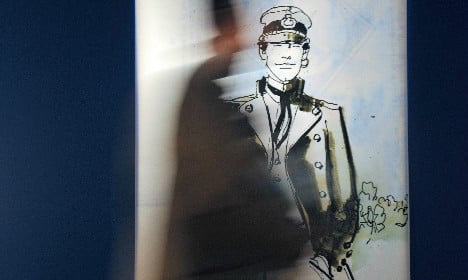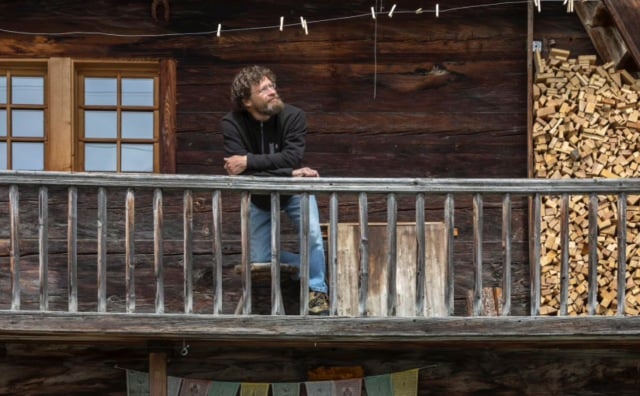The new book – published later this month – picks up from the end of “The Ballad of the Salt Sea”, the story which launched Hugo Pratt's celebrated series in 1967 with its laconic hero returning from run-ins with pirates in the Pacific during World War I, to hook up again with the American novelist Jack London in the vast wilderness of Alaska.
London was just one of a host of real-life historical characters whom the fictional Corto Maltese encounters in the stories, including the outlaw Butch Cassidy, writers James Joyce, Ernest Hemingway and Joseph Conrad, and the Russian mystic Rapustin. In one story, he is even saved from a firing squad by a phone call to Stalin.
Having crossed paths with some of the early 20th century's most famous figures, Maltese – the son of a Cornish sailor and an Andalusian gypsy – mysteriously disappears during the Spanish Civil War.
So it is fitting that he is being brought back to life by a Spanish duo, artist Ruben Pellejero and writer Juan Diaz Canales, who have turned the clock back to 1915 for “Under the Midnight Sun”.
“We always said that we wanted to be the authors of the story, not just copying Pratt,” said Pellejero. The pair have created a black-and-white as a well as a colour version of the 88-page story, which is published across much of Europe on September 30th.
Another attempt to revive the series — which has inspired films and video games — by the celebrated French graphic novelists Christophe Blain and Joann Sfar came to nothing.
Despite his ever-so-English sounding name, the original author Hugo Pratt was Venetian and every bit the globe-trotter as his erudite, eternally curious hero, building up a cult following in France, Italy and Argentina – where he began his career as an illustrator – as well as in South Korea.
That restless, adventurous spirit is the key to Corto Maltese's appeal, Pellejero said: “He invites you to voyage and dream with him.”
The character's mixed ancestry and psychological complexity is also part of the draw, the authors insist, with his message that tolerance and sympathy are never more needed than in troubled times.
“One or two generations have passed who know the character (of Corto) but who have never read the books,” Madrid-based Canales told AFP. “If our book brings people back to the series that is even better,” he said.
A second new Corto Maltese book is planned for two years' time, with an English version of “Under the Midnight Sun” also due to be published in the US, its French publisher Casterman said.



 Please whitelist us to continue reading.
Please whitelist us to continue reading.
Member comments